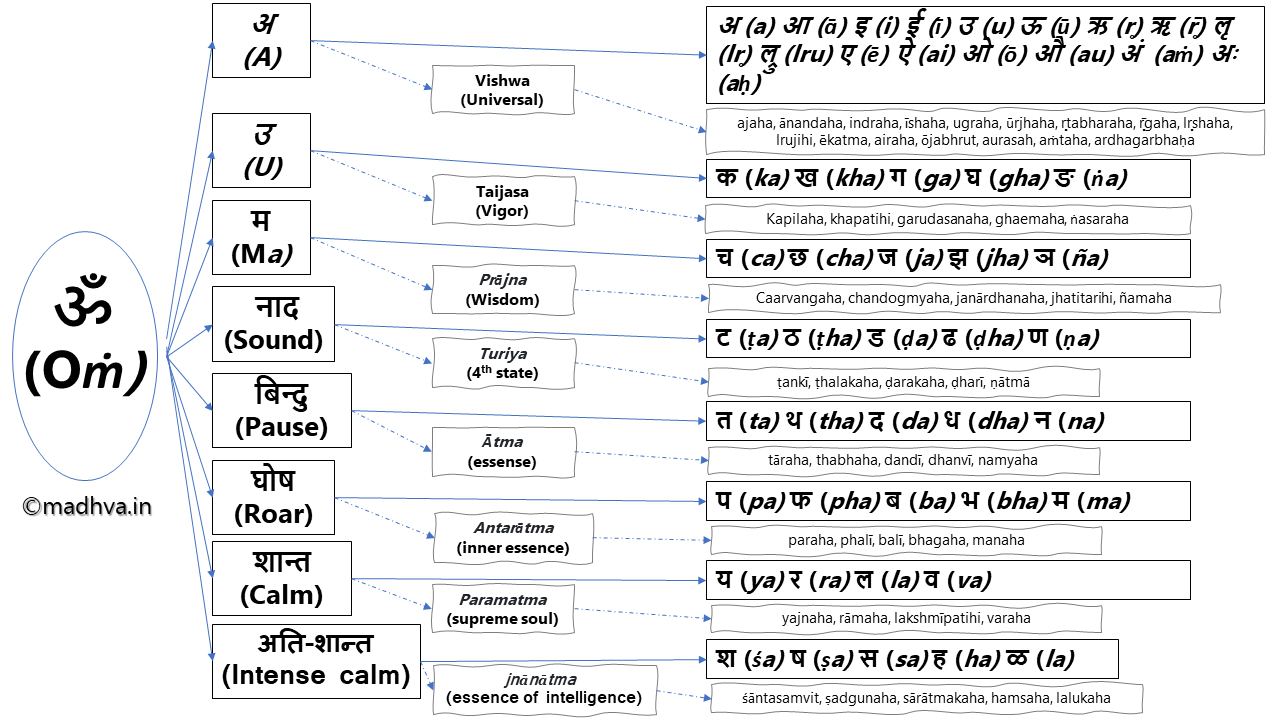Tantra Sāra 1.008
घर्मो ङसारस्चार्वाङ्गश्छन्दोगम्यो जनार्दनः। झटितारिर्ञमष्टङ्की ठलको डलको ढरी ॥८॥
gharmō ṅasārascārvāṅgaśchandōgamyō janārdanaḥ। jhaṭitārirñamaṣṭaṅkī ṭhalakō ḍalakō ḍharī ॥8॥
[gharmō = Gharmaha; ṅasārascārvāṅgaśchandōgamyō = ṅasaraha, Caarvangaha, Chandogmyaha; janārdanaḥ = Janārdhanaha; jhaṭitārirñamaṣṭaṅkī = Jhatitarihi, ñamaha, ṭankī; ṭhalakō = ṭhalakaha; ḍalakō = ḍarakaha; ḍharī = ḍharī;]
gha - for Gharmaha, ṅa - for ṅasaraha, ca - for Caarvangaha, cha - for Chandogmyaha, ja - for Janārdhanaha, jha - for Jhatitarihi, ña - for ñamaha, ṭa - for ṭankī, ṭha - for ṭhalakaha, ḍa - for ḍarakaha, and ḍha - for ḍharī.
Note:
Gharmaha = one who causes misery to the enemies; ṅasaraha = who is the essence of material subjects; Caarvangaha = One who is beautiful; Chandogmyaha = One who is conveyed by Vedas; Janārdhanaha = one who is without birth, and destroyed of bondage; Jhatitarihi = who drives the enemy away; ñamaha = one who loves the person who praises; ṭankī = one who has a hammer that breaks the rock as his weapon; ṭhalakaha = one who gives happiness to Rudra and Indra; ḍarakaha = one who gives illuminance to moon and fire; ḍharī = Worshipped by four faced Brahma who administers liberation;
A pictorial representation of how everything is derived from the Pranava, 'Om':

